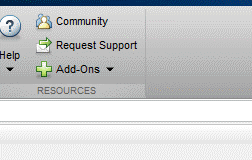Arduino Support from Simulink
Create and run Simulink models on Arduino boards
- Arduino Support from MATLAB
- Arduino Support from Simulink
- ThingSpeak Support from Desktop MATLAB
Capabilities and Features
With Simulink®Support Package for Arduino®Hardware, you can use万博1manbetxto develop and simulate algorithms that run standalone on your Arduino. The package includes:
- Hardware plugin detection for Arduino boards in MATLAB and setup screens for initial Arduino board configuration
- UDP and TCP/IP blocks in the Ethernet shield library and Wi-Fi library to let your Arduino hardware communicate withLEGO MINDSTORMS®EV3,Raspberry Pi™, and mobile devices (Android™andiOS) over Ethernet or Wi-Fi
- Simulink blocks for configuring and accessing Arduino inputs and outputs
- Write and read blocks to communicate directly with aThingSpeak™channel from your algorithms running on an Arduino board
- Access to Arduino WiFi Shield, onboard Wi-Fi chip on Arduino MKR1000, ESP8266 modules, and Ethernet Shield
- External mode for interactiveparameter tuning and signal monitoringas your algorithm runs on the device (not available on some boards – see list below).Dashboard blocksandSimulation Data Inspectorare supported with XCP-based External mode as of R2019a.
- Model deployment for独立的操作on Arduino boards
- Simulink I/O access to peripherals connected to Arduino boards before deploying models to hardware, including digital inputs and outputs, I2C read and write, SPI write/read, analog inputs, and pulse width modulated outputs
- External Interrupt blocks lets you trigger downstream Function-Call subsystems
- Documentationthat guides you on how to create a device driver block to access specific features of your hardware board
- Simulink Coder™ lets you access the C code generated from Simulink and trace it back to the original model.
- Embedded Coder®lets you generate optimized code, use code replacement libraries, and perform software-in-the-loop and processor-in-the-loop verification.
Learn more aboutArduino programming with MATLAB and Simulink.
Supported Hardware
| Arduino Board | Shield Support | Interactive Tuning and monitoring | Comments |
|---|---|---|---|
| Arduino Due* | Y | Y | Supported from R2014a to the most recent release. CAN channel not currently supported. |
| Arduino Uno* | Y | Y | Supported from R2013a to the most recent release. Interactive tuning supported as of R2016b. You can log one signal at 1 kHz or up to 6 signals at 5 ms rate. |
| Arduino Leonardo* | Y | Y | Supported from R2014b to the most recent release. |
| Arduino Mega 2560* | Y | Y | Supported from R2013a to the most recent release. Log one signal at 1 kHz or up to 6 signals at 5 ms rate in R2016b and more recent releases. |
| Arduino Mega ADK* | Y | Y | Log one signal at 1 kHz or up to 6 signals at 5 ms rate in R2016b and more recent releases. |
| Arduino Micro* | N | N | Supported from R2014b to the most recent release. |
| Arduino LilyPad USB | N | N | Supported from R2014b to R2017b. |
| Arduino Esplora | N | N | Supported from R2014b to R2017b. Additional IO supported via analog multiplexer. |
| Arduino Robot | N | N | Supported from R2014b to the most recent release. Additional IO supported via analog multiplexer. |
| Arduino Mini* (ATmega328) |
N | N | Supported from R2014b to R2017b. Mini with ATmega168 not supported. |
| Arduino Nano 3.X* (ATmega328) |
N | N | Supported from R2013b to the most recent release. Nano 2.X with ATmega168 not supported. |
| Arduino Pro* (ATmega328) |
N | N | Supported from R2014b to R2017b. Pro with ATmega168 not supported. |
| Arduino Fio | N | N | Supported from R2014b to R2017b. |
| Arduino Yún | N | Y | Supported from R2015b to R2017b. |
| Arduino MKR1000 | N | Y | Supported from R2017b to the most recent release. MKR1000 has an onboard Wi-Fi chip to provide Wi-Fi capabilities. |
| Arduino Ethernet Shield | See Shield Support column for compatibility | ||
| Arduino WiFi Shield | See Shield Support column for compatibility | ||
| ESP8266 Module | ESP8266 is a low-cost chip that can add Wi-Fi® capability to a microcontroller.See example. | ||
| MKR1010 WIFI | N | Y | Supported from R2019a to the most recent release. MKR1010 WIFI has an onboard Wi-Fi chip to provide Wi-Fi capabilities. |
| Arduino Nano 33 IoT | N | Y | Supported from R2020a to the most recent release. Nano33 IoT has an onboard Wi-Fi chip to provide Wi-Fi capabilities. |
*Also supported in MATLAB Support Package for Arduino Hardware
Platform and Release Support
See thehardware support package system requirements tablefor current and prior version, release, and platform availability.
View enhancements and bug fixes inrelease notes.


